New Swiss technologies listen out for Covid-19
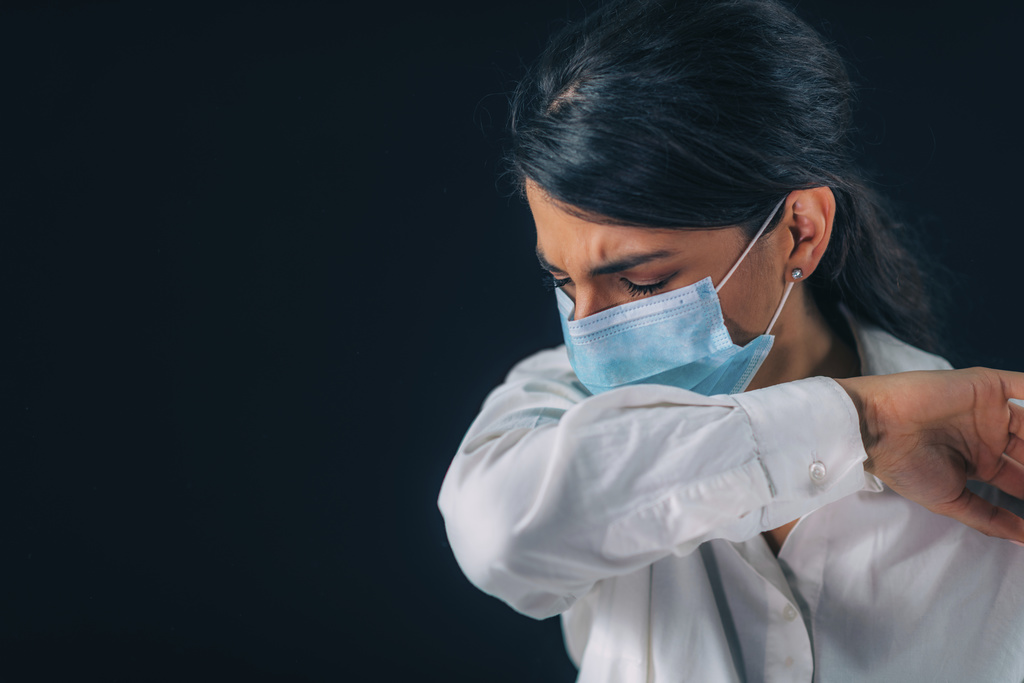
Two promising innovations under development use artificial intelligence to predict whether someone has coronavirus by analysing their coughs or breathing patterns.
Coughs have been a valuable diagnostic tool for centuries. Today, being able to say whether you have a tell-tell dry Covid cough or a harmless hack is a crucial – perhaps life-saving – test. In the future, this could be done digitally using the “CoughvidExternal link” smartphone app, an AI-based system being developed at the Swiss Federal Institute of Technology Lausanne (EPFL).
The idea is simple. You are worried you may have the virus and you want to check before contacting a doctor. Using the app, you make a recording of your cough at home, then submit it online after answering a few basic health questions. Algorithms automatically study your recording, looking out for distinctive patterns to determine whether you have a dry, persistent “Covid cough”. A diagnosis is sent back instantaneously.
An EPFL student came up with the idea after reading World Health Organization (WHO) information that a typical dry cough was a sign of infection found in two-thirds of patients.
“If you listen closely, you can hear that there’s a clear chirp in the Covid cough which is recognisable,” explains EPFL scientist Tomas Teijeiro.
Fewer hospital visits
Analysing coughs is not new, said his colleague David Atienza, a professor of EPFL’s School of Engineering and another member of the Coughvid development team. Doctors already listen to patients’ coughs to diagnose whooping cough, asthma and pneumonia.
“With Coughvid we want to offer large-scale, convenient and reliable screening. It’s an alternative to conventional tests,” said Atienza, who added that it was not a substitute for medical examinations.
The wider objective is to reduce the number of people going to the doctor, demanding a test when they don’t exhibit the symptoms.
Medics’ reactions to the invention have been mixed.
“Some say that if you can simply filter 20-30% of people coming to hospital that can be very helpful,” said Teijeiro. “Some were very enthusiastic; they want us to commercialise it tomorrow. Others said it would never work and they would never use it as it doesn’t cover everyone … But even among the most sceptical, everyone says it’s worth exploring as it’s cheap and easy to set up.”
App not ready
So far the team has collected over 19,000 cough recordings online. But they need more samples to train the app to distinguish between the coughs of people with Covid-19, healthy people and people with other kinds of respiratory problems.
Teijeiro has been working with Swiss doctors to analyse and validate some of the recordings. But this has revealed certain inaccuracies between what is self-reported online – whether the person feels sick or not – and the reality verified by doctors.
A clinical validation via a trial will nonetheless be required before releasing the app to the general public. No release date has been set.
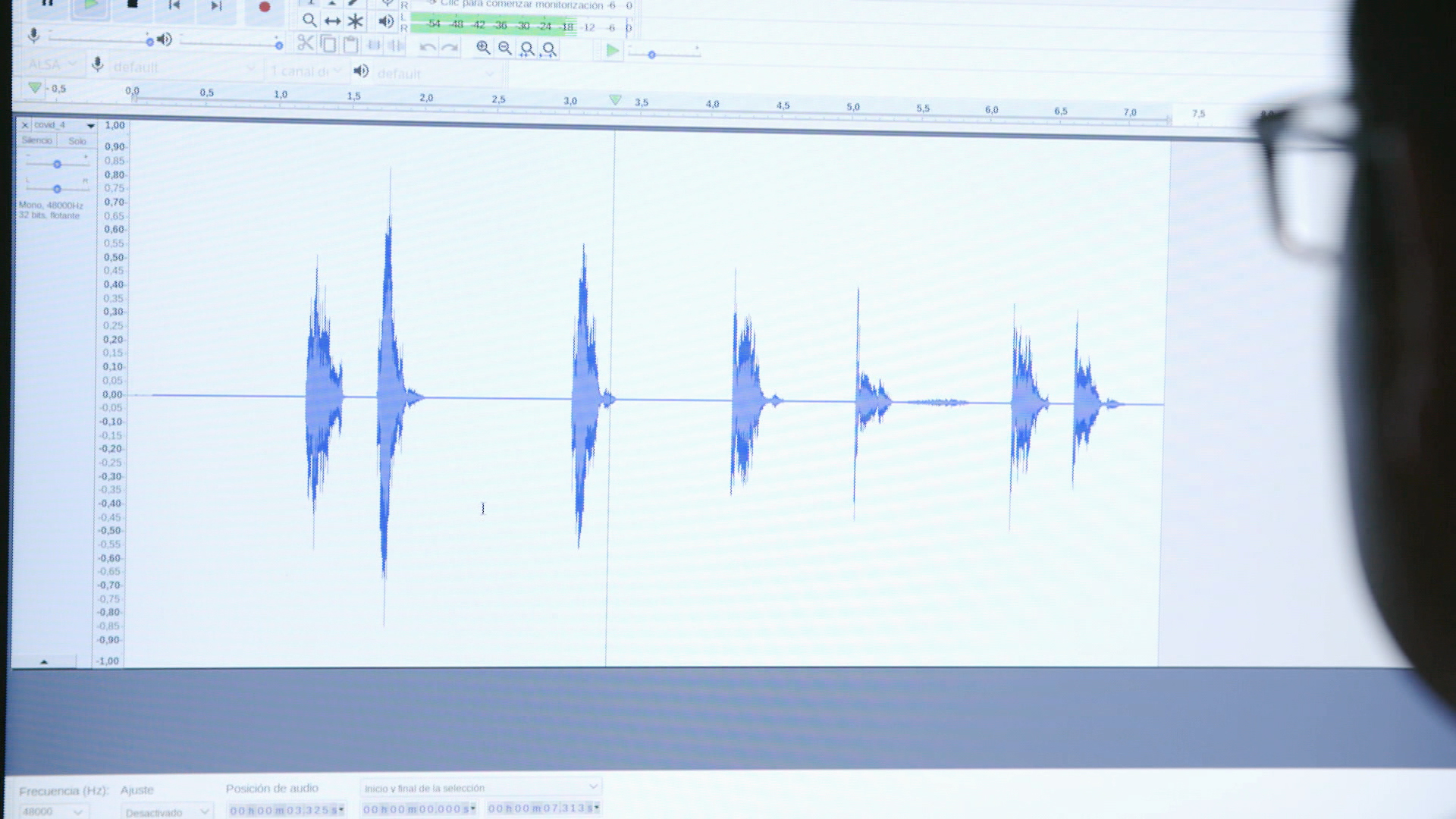
More
Coughvid app uses AI to detect Covid-19
Things need to get worse
The current situation is paradoxical, said Teijeiro, as they need the number of Covid cases to rise – allowing them to acquire more data – for the project to advance.
“The app is almost ready. It’s connected to our servers and we can do the tests, but until we do the medical validation, we cannot release it,” he said. “We’ve done the whole protocol with the doctors. We’re just waiting for when they get patients, when things get worse.”
Coughvid was voted one of the three best ideas at a recent EPFL coronavirus hackathon. But the app is not unique. Scientists are currently working on four similar projects at universities in Cambridge and New York, and at the Massachusetts Institute of Technology (MIT).
Beyond substantial press coverage, Teijeiro said a number of companies had approached them to commercialise it and the WHO is also interested in integrating the idea into its own app.
‘Shazam’ it
Meanwhile in Geneva, scientists at the University Hospital (HUG) External linkare developing a comparable idea: an autonomous intelligent stethoscope that analyses breathing patterns to help determine whether someone has Covid-19 or other respiratory illnesses like pneumonia.
All lung diseases have different acoustic signatures, explains Alain Gervaix, head of the Department of Women, Children and Adolescents at the HUG.
“The sounds of asthma are different from those of pneumonia and bronchiolitis. Like the Shazam music app, which can recognise a song and its author and title, we’re using AI algorithms to find the acoustic signatures of each of these illnesses,” he explained.
The doctors want to add Covid to that list. Since the outbreak of the disease they have collected and analysed thousands of recordings of Covid patients. They are presently collaborating with a team at EPFL and the University of Applied Sciences (HEPIA) in Geneva to build a prototype device that should be ready at the end of September.
On paper it resembles a small pot of face cream rather than a traditional stethoscope.
“You won’t even need to have anything in your ears,” explains Gervaix. “You place the device on the patient’s thorax. Their breathing is recorded via an internal microphone. The device records, analyses and displays results on a smartphone or tablet.”
Replacing the doctors’ ears
The stethoscope should enable a better early screening of Covid patients who require an expensive test.
Anyone with the virus could use the device to regularly check themselves, said Gervaix. By monitoring changes in breathing, the algorithms could tell them – and their doctor via an automatic alert – if they are getting better or worse.
The project is moving ahead and a number of interested parties are lining up. Gervaix said he had been in touch with the Swiss NGO Terre des hommes about using the device in poorer countries. Chemists in Switzerland are also interested, as the Swiss government wants pharmacists to become frontline health actors in the future.
“Covid has changed medicine a great deal,” said Gervaix. “It has separated the patient from their doctor rather than bring them closer together. But Covid has also revealed how telemedicine has become much more important. Telemedicine is starting to show its true capabilities.”

In compliance with the JTI standards
More: SWI swissinfo.ch certified by the Journalism Trust Initiative










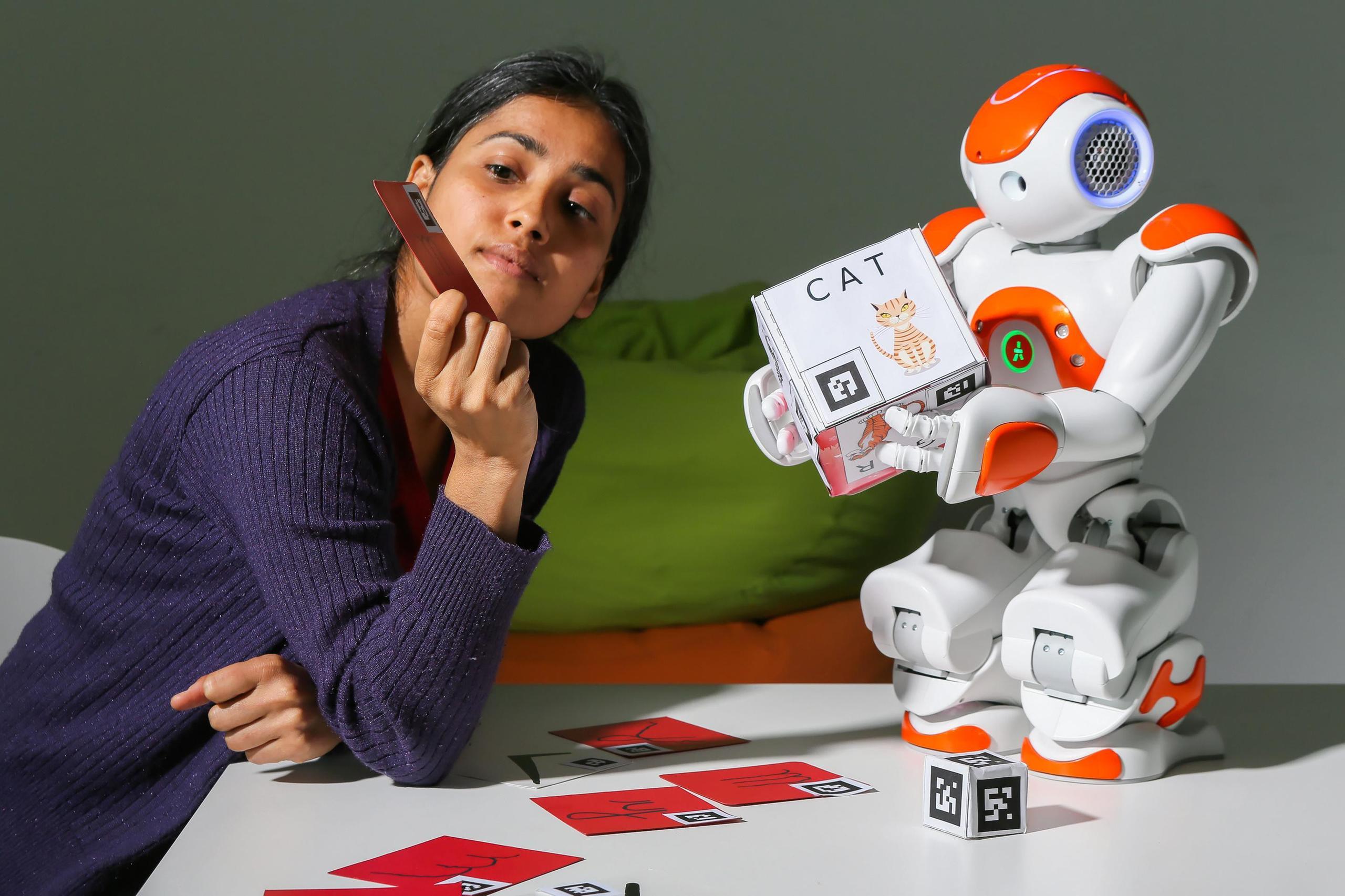
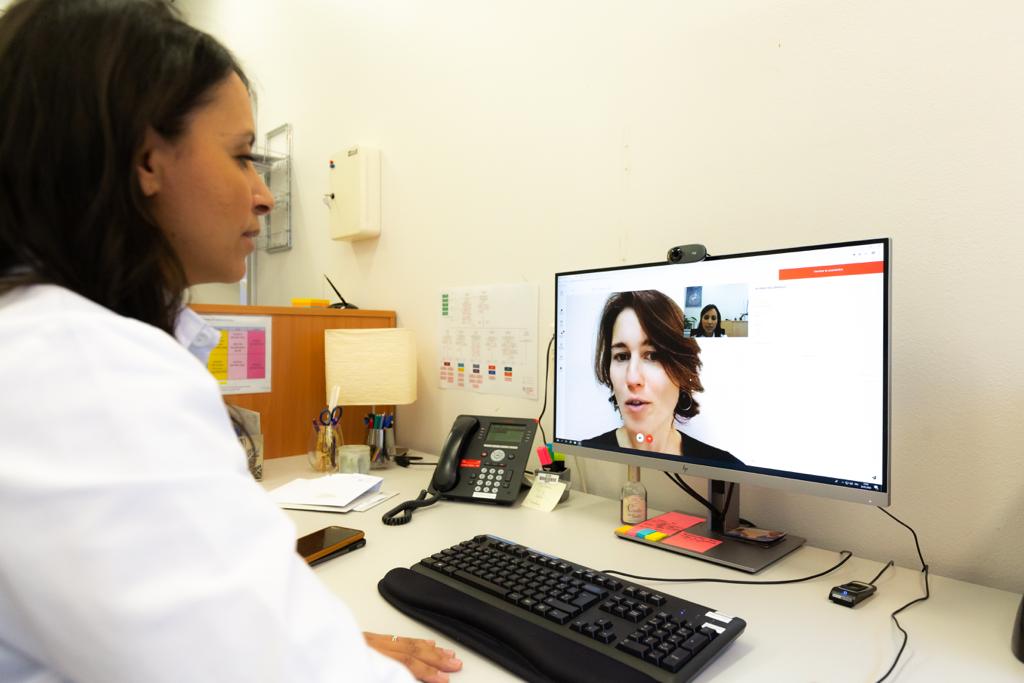
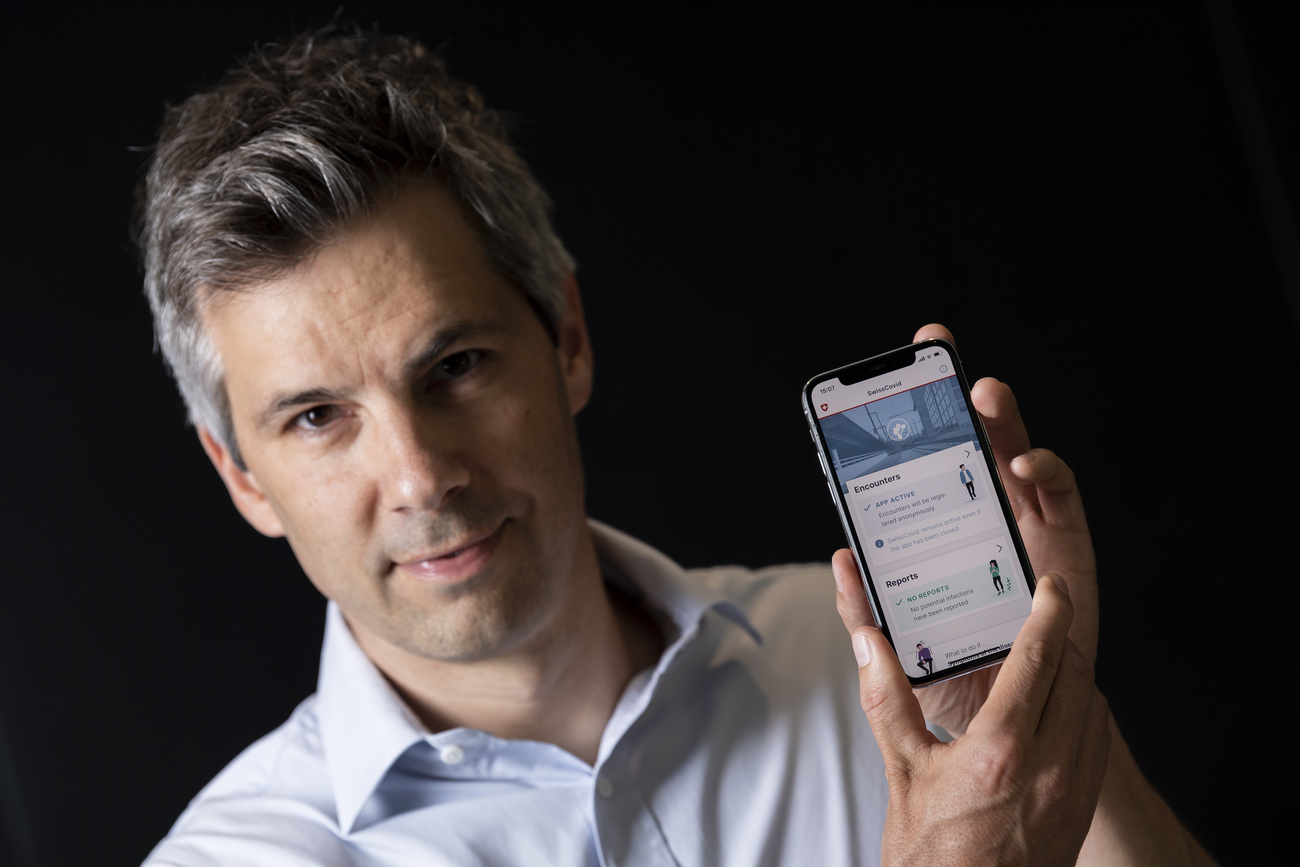
You can find an overview of ongoing debates with our journalists here . Please join us!
If you want to start a conversation about a topic raised in this article or want to report factual errors, email us at english@swissinfo.ch.